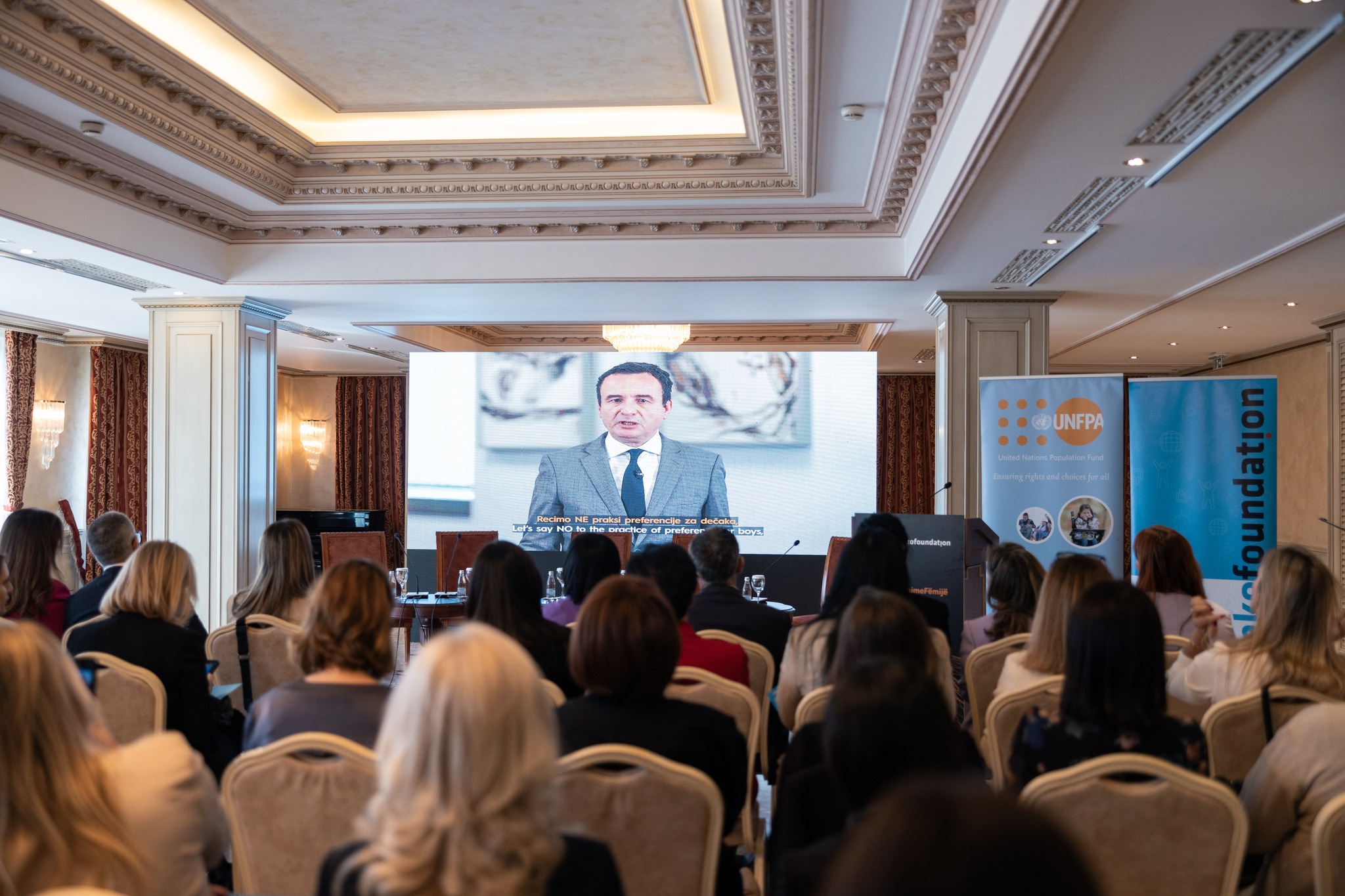
Back to Activities Education
The campaign “Të Gëzoheni me Fëmijë” – Tackling selective abortion through educational equality
UNFPA Kosovo, in partnership with IPKO Foundation, launched the campaign “Të Gëzoheni me Fëmijë” in Kosovo on October 11 to commemorate the International Girl Child Day.
The campaign aimed to raise awareness about the issue of gender-biased sex selection and its link to unequal access to education for girls and to advocate for improved educational opportunities, particularly in the field of technology, as a means to address this concern.
The Launching Ceremony started with the awareness message of the Prime Minister of Kosovo, Mr.Albin Kurti, who joined the campaign by addressing an awareness message about the importance of girls and women in society.
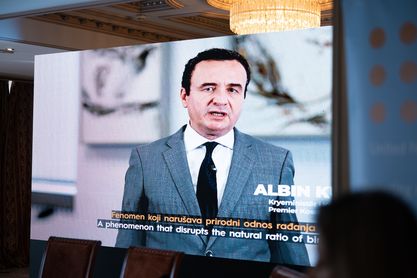
"A house needs a son", - is the mindset and expression that we still hear in our society. A phenomenon that disrupts the natural ratio of births should no longer have a place in Kosovo. – Our daughter is the most precious gift for me and Rita!” said Kurti during his keynote message.
Equal regard for girls and boys is the first step towards a more fair and inclusive society.
“Let's say NO to the practice of preference for boys, because "he/she who has daughters has the world” [another traditional saying]” Prime Minister continued the message.
The Minister of Health of Kosovo, Arben Vitia, who joined the launching of the campaign stated that continuous efforts are being made to improve the actual situation with selective abortion in Kosovo.
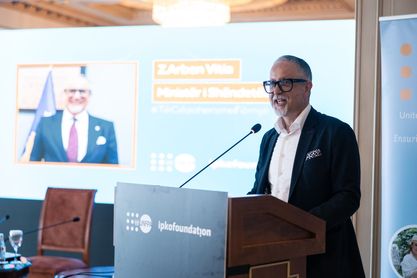
In Kosovo, there is not precise data on abortion, and this is one of the challenges for institutions.
In 2022, more than 1,200 abortions were reported, the Minister said. “Women and girls have always been advocates for change in every institution. The stronger women are, the stronger society becomes."
Education and empowerment of girls are among the most effective ways of fighting the phenomena of selective abortion.
The Minister of Education, Science, Technology, and Innovation, Arbërie Nagavci, emphasized that access to education will be equal for everyone in Kosovo, especially for girls.
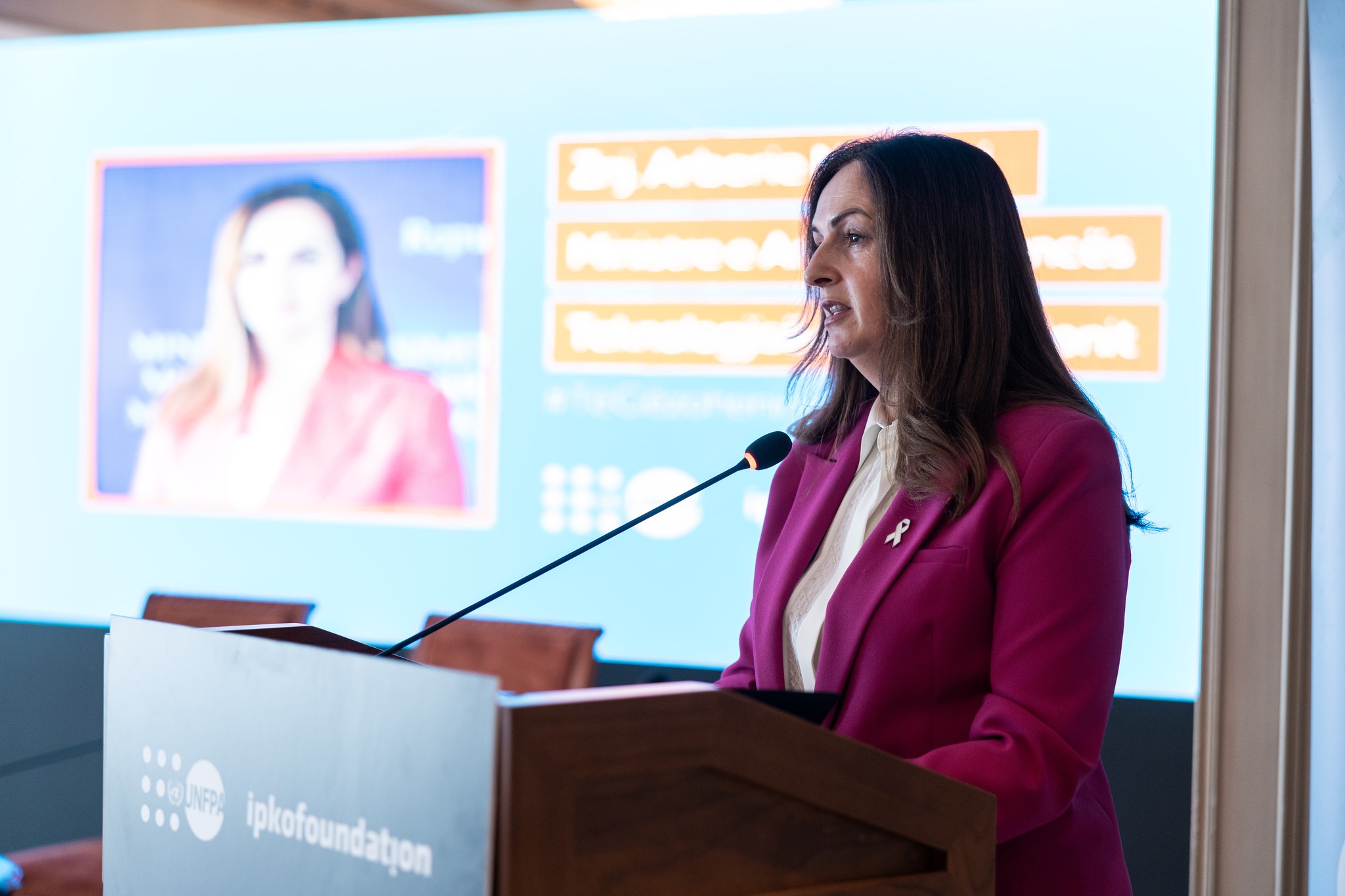
She further added that they will work to make women strong professionals, guaranteeing not only their empowerment but also the development of the entire society.
"This event will help highlight the challenges and difficulties faced by girls. We are taking steps forward for girls as well. We will ensure strong and professional women in the future, empowering not only themselves but the entire society. Investing in girls is an investment that enables the development of a healthy society in the future. The challenges are similar to all countries worldwide, but we also offer scholarships for education. Selective abortion affects the balance of life. The best way to prevent this phenomenon is through education”, she said.
The Director of UNFA Kosovo, Visare Mujku-Nimani, stated that they are committed to promoting women's rights in every sphere. She called for equal treatment and addressing the causes and consequences of discrimination.
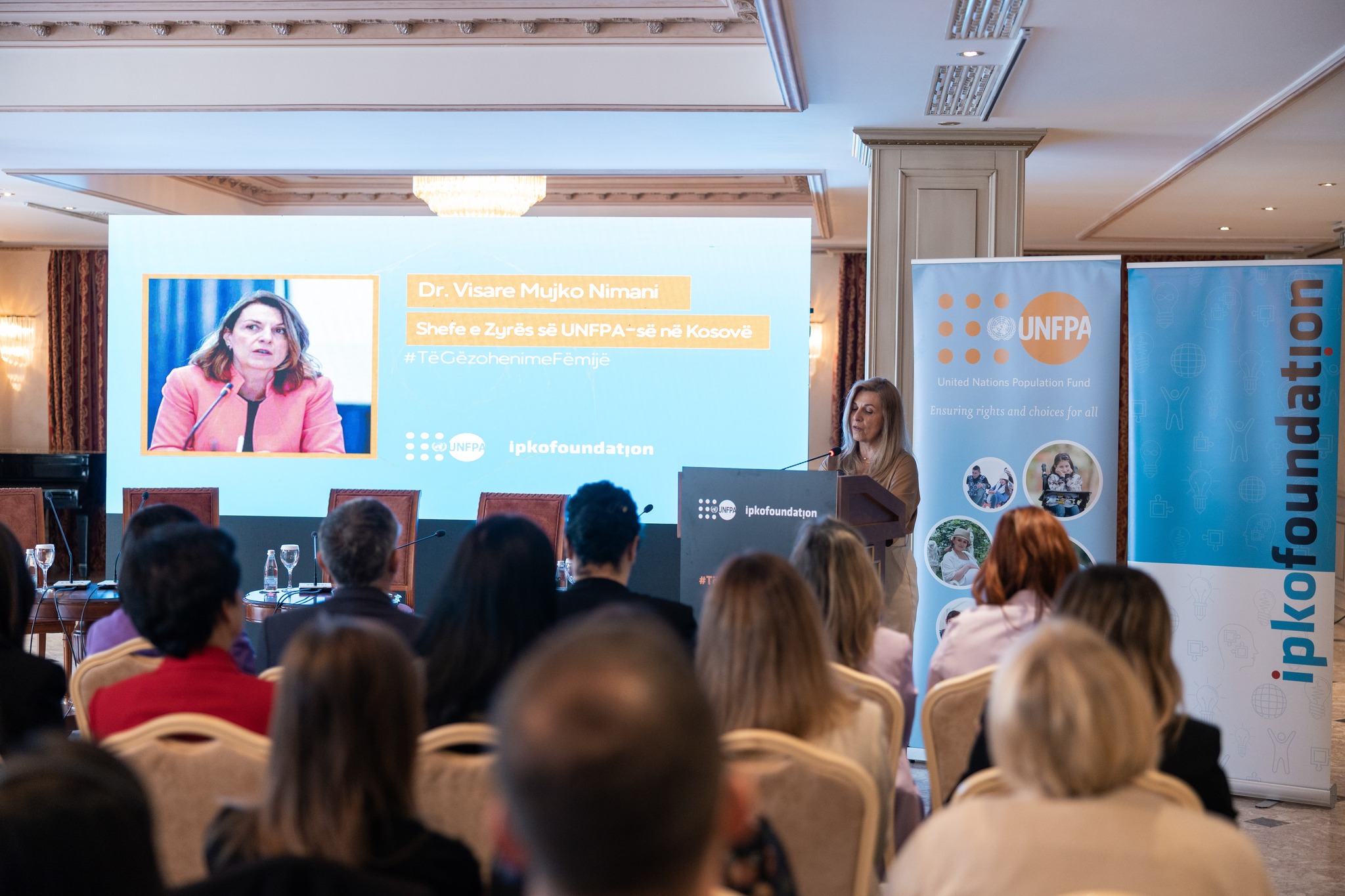
"UNFA Kosovo is strongly committed to promoting women's rights. We must address the causes of gender-based discrimination. Non-discrimination should not be just a slogan but a foundation for every society. We must advocate for equal treatment. To combat this phenomenon, we need to work in all institutions."
Education is the key to combating negative phenomena in our society, such as selective abortion, said the Executive Director of IPKO Foundation, Ms.Abetare Gojani.
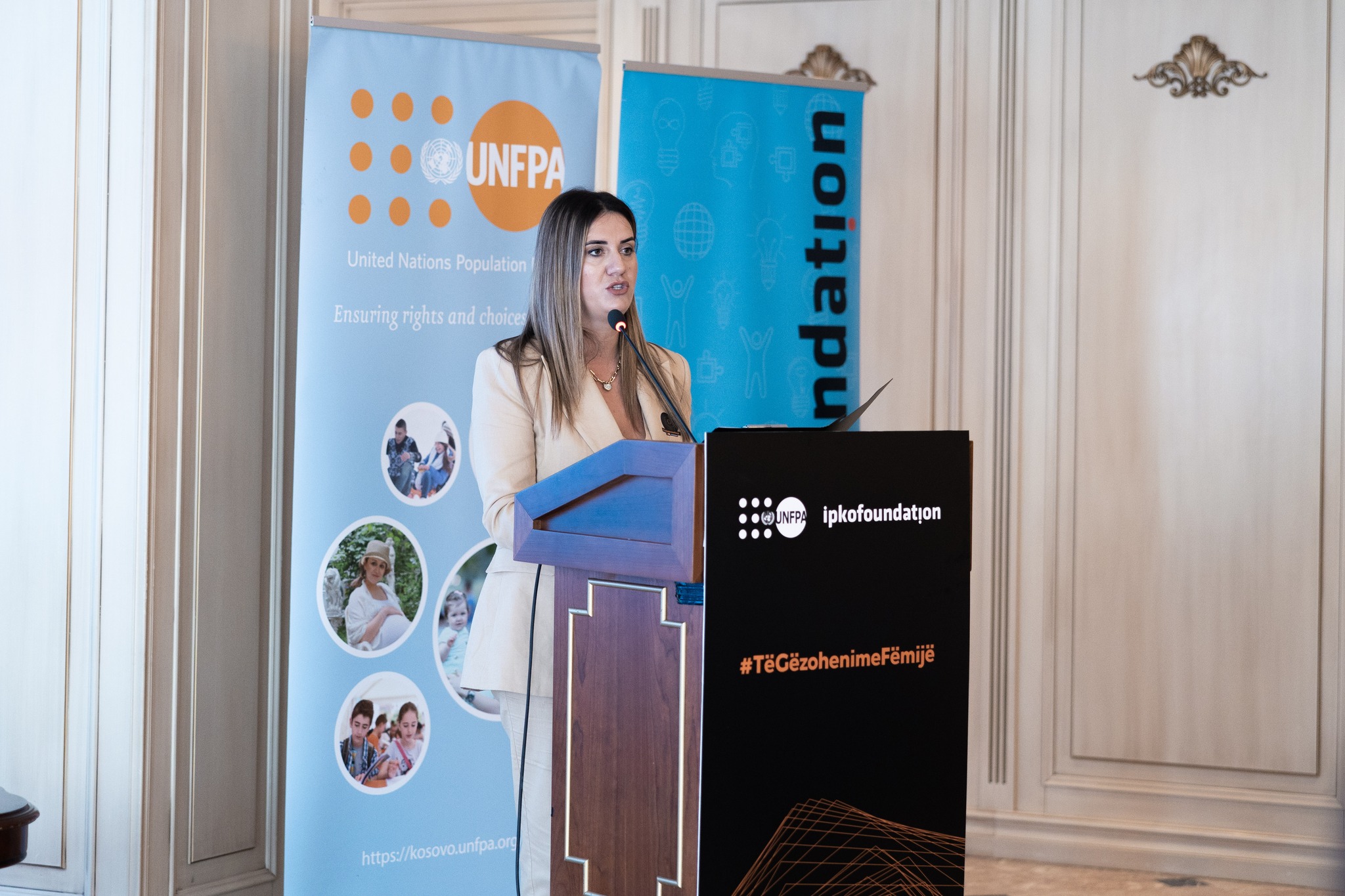
“IPKO Foundation remains committed, along with its partners, to empower girls in our society by offering them non-formal education training and encouraging them to challenge themselves in directions that have been prejudiced until now. Selective abortion phenomena is an issue that requires effective actions and initiatives, and we are here today to unite our forces and energies towards finding a solution”, she stated.
During the launching ceremony of the campaign, the journalist and human rights activist, Ms.Kaltrina Rexhepi Dragusha, showed the documentary “Killing girls in the womb” she has been working that tackles dhe phenomena of Selective Abortion.
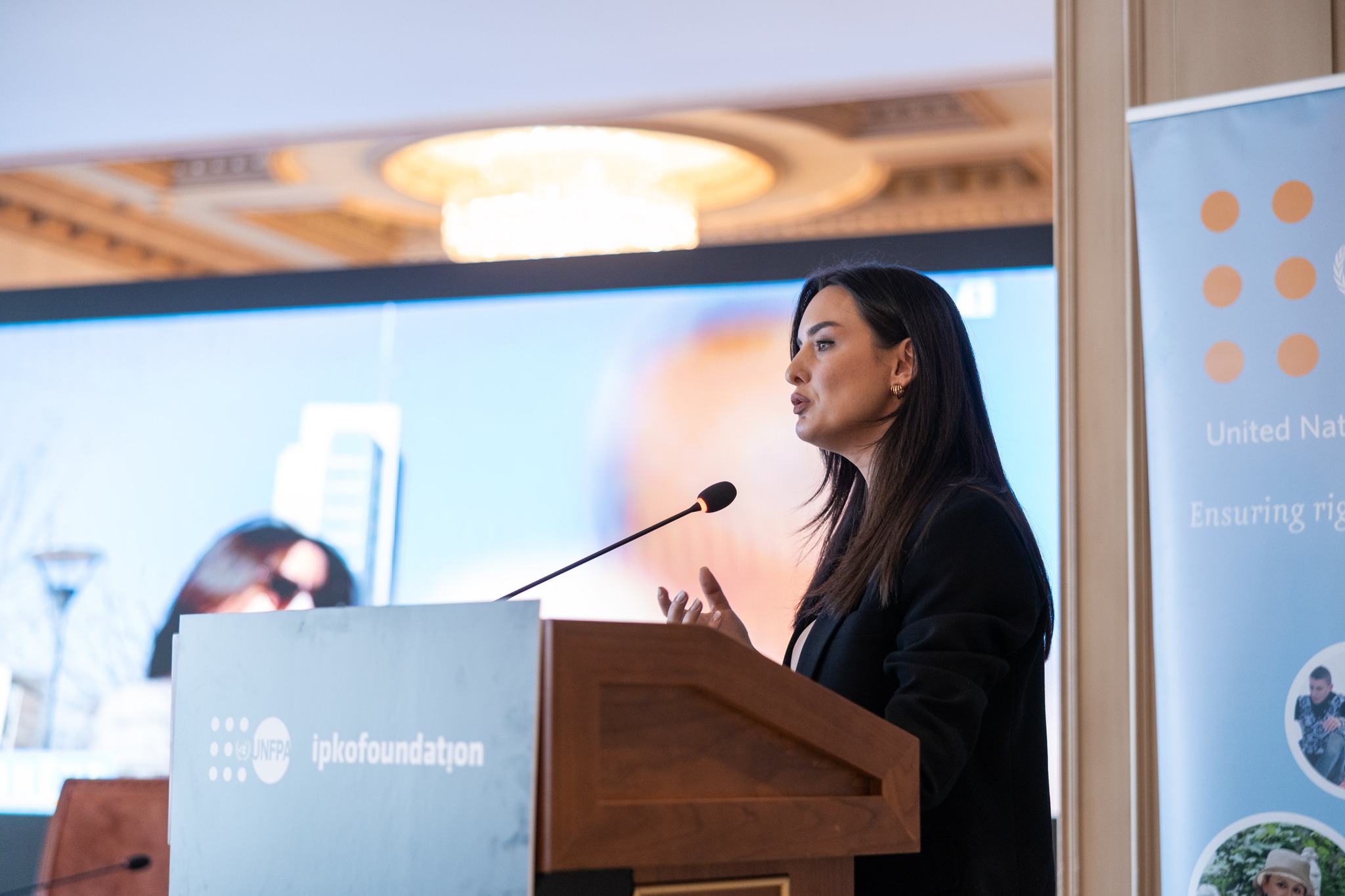
The report highlights a complex issue in Kosovo, where cultural norms, patriarchal influences, and the strong desire for male children are driving some couples to seek unethical and illegal gender selection practices. While some gynecologists are involved in these practices, the medical community, patient advocacy groups, and legal authorities are condemning these actions. Urgent measures are needed to address the ethical and legal concerns surrounding gender selection practices and to protect the rights and health of women and children in Kosovo.
Kosovo, like many societies, has traditionally held patriarchal values, where having a male child is considered essential to complete the family. This deep-rooted mindset has led institutions of justice to turn a blind eye to numerous couples who, unable to naturally conceive a son, resort to different methods to ensure the birth of a male child. This includes both alternative medical methods and unscientific practices, despite clear legal prohibitions against gender selection in reproductive health, as stipulated in Article 23 of the Health Reproduction Law.
How to combat gender-biased sex selection through education
On Girl Child Day, a panel discussion was organized to address more in-depth data about the phenomena of selective abortion and the importance of offering equal opportunities to education for young girls and boys, moderated by Visare Mujko Nimani - Head of UNFPA Kosovo.

The discussion was among panelists:
- Mr. Avni Kastrati – Director of the Department for Social and Population Statistics, ASK
- Ms. Leonida Molliqaj - Executive Director of QIKA
- Dr.Memli Morina - gynecologist - obstetrician
- PhD Ms.Venera Demukaj – Assistant Professor of Economics, RIT Kosovo
Some of the recommendations coming out during the panel were:
- We as a society should fight the traditional gender roles.
- Education and awareness about this topic should start from the family. To treat girls and boys equally in the family.
- We should start by implementing laws, statistics, to empower girls.
- Together with institutions, civil society, gynecologist, let's raise the value of girls to the same level as boys in our society.